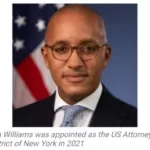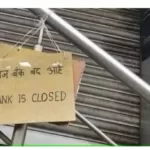In a monumental stride against transnational crime, the Central Bureau of Investigation (CBI) has successfully geolocated 184 criminals scattered across various countries. The agency, in collaboration with Interpol and international law enforcement counterparts, has initiated formal proceedings for their extradition, marking a significant step towards global crime deterrence.
Under the dynamic leadership of CBI Director Praveen Sood and National Investigation Agency (NIA) Chief Dinkar Gupta, India’s proactive stance was articulated at the Interpol 91st general assembly held in Vienna. The team emphasized the imperative need to eliminate safe havens for criminals, their activities, and ill-gotten gains on the international stage.
Notably, the federal anti-corruption probe agency has orchestrated the return of 24 fugitives this year alone, showcasing an unprecedented level of collaboration between Indian and international agencies. Over 65 individuals have been successfully brought back since 2021, underlining the efficacy of enhanced cooperation in tackling cross-border criminal elements.
The meticulous process of geolocating these criminals involves a multi-faceted approach, utilizing technical data, phone locations, analysis of criminal activities, and human intelligence. This method has proven instrumental in pinpointing the exact whereabouts of individuals evading the grasp of justice.
Among the success stories are individuals like Subhash Shankar Parab, a confidante of diamantaire Nirav Modi, repatriated from Cairo in April last year. Harpreet Singh, also known as Happy Malaysia, alleged mastermind behind the December 2021 Ludhiana court bomb blast, was brought back from Kuala Lumpur. Additionally, the return of Bikramjit Singh alias Bikkar Panjwar, a pro-Khalistan operative responsible for the 2019 Tarn Taran bomb blast, from Vienna in December 2022, underscores the global impact of India’s efforts.
Interpol data indicates that there are currently 277 individuals wanted by India, against whom red notices—international arrest warrants—are pending. The 91st general assembly witnessed a five-member Indian delegation engaging in bilateral discussions with 14 countries. The focus was on fostering enhanced coordination via Interpol channels, expediting mutual legal assistance, and facilitating extradition requests.
India’s delegation underscored the imperative to deny any safe havens for crime, criminals, and the proceeds of crimes. Discussions with senior officials of Interpol, Europol, Pacific Islands Chiefs of Police Organisation, and the US Air Force Office of Special Investigations were held to fortify arrangements for international cooperation.
As the nation continues to strengthen its global alliances against organized crime, terrorism, drug trafficking, and cyber-enabled financial crimes, the CBI emphasizes coordinated strategies to curtail criminal organizations operating across international jurisdictions.




